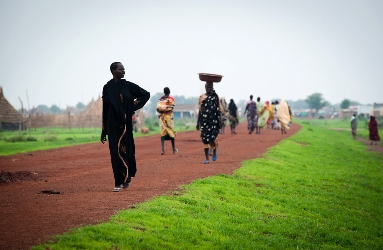Unity State authorities issue new registration for national traders and foreign businesses
By Bonifacio Taban Kuich
August 25, 2012 (BENITU) – Authorities in South Sudan’s Unity State are re-registering all businesses and issuing new licenses to traders in the area. The authorities say the move is being implemented in accordance with new tax and business registration laws. However, many traders say they are not fans of the new system.

Deputy Director of Commerce in Unity state, James Dhoal Gatduel, says they are implementing the provisions of a new law. “Up to this time we have registered about 24 big business and we are targeting to cover the whole state. Well we have begun it last Friday and it will be continue until we cover the whole state”, said Gatduel.
A one year trading license costs 450 SSDG (US$102). Before South Sudan gained independence, businesses were being registered and given licenses by County authorities.
Business owners in Unity State say they are being overcharge twice, first they are forced to pay high taxes to the government and then after that they are forced to pay taxes to people posing as tax officers.
Gatduel says the move to issue new licenses is aimed at bring an end the illegal tax collection by imposters in the market. “The traders are complaining that they are paying a lot of taxes two times, there are guys with new documents they ask money from them what I can say the system is going to be a bit organized after this registration,” added Gatduel.
Abdelrhim Alzin Salih, a pharmacist working in Bentiu said he hopes the new documents will not be forged by people posing as tax collectors.
“We heard from government officials three days ago who were urging traders to completer the cost of about 142 SSP [US$32] for a year. We are hoping that this document will protect us from illegal taxation and will help us toward operating our business,” said Salih.
After the closing of the oil pipeline, South Sudan lost 98 percent of its revenues. The registration process may be a move to tackle the deficit.
(ST)
